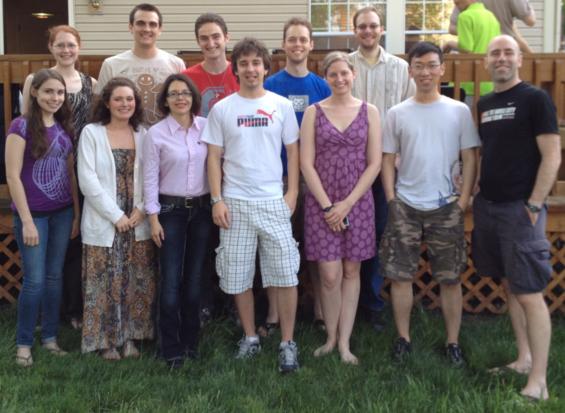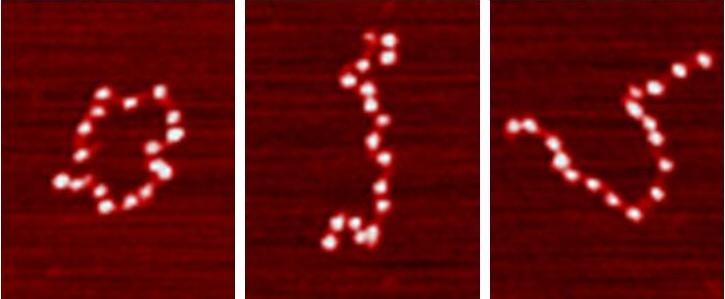Welcome to the
Poirier Lab

Modern
biological physics and molecular biology aims to reveal the molecular
mechanisms of biological functions such as the expression of a gene and
the repair of a damaged genome. Our genomes are organized into
chromosomes, which contain long chromatin fibers that are a complex
assortment of DNA and protein. The fundamental unit of chromatin is the
nucleosome, which contains ~147 base pairs of DNA wrapped around an
octamer of H2A, H2B, H3, and H4 histone proteins. This results in our
genomic DNA being organized into
~20 million nucleosome spools. Nucleosome and chromatin structure and
dynamics play central roles in
regulating all forms of DNA processing, including RNA transcription and
DNA repair.
We
are quantitatively investigating the mechanisms by which our genome is
expressed and repaired. Our
approach is to apply a cross-disciplinary techniques that combines
biochemical, biophysical and single molecule techniques, which
includes: restriction enzyme studies, cyclization experiments,
nucleosome mapping, steady state Fluorescence Resonance Energy Transfer
measurements (FRET), stopped flow FRET, fluorescence correlation
spectroscopy, single molecule force and twist measurements with
magnetic tweezers, Atomic Force Microscopy (AFM) measurements and
single molecule FRET measurements.
Because of our interdisciplinary
nature, collaborations are essential for our success. We have developed
close collaborations with the Ottesen
Lab
and the Bundschuh
Lab.





